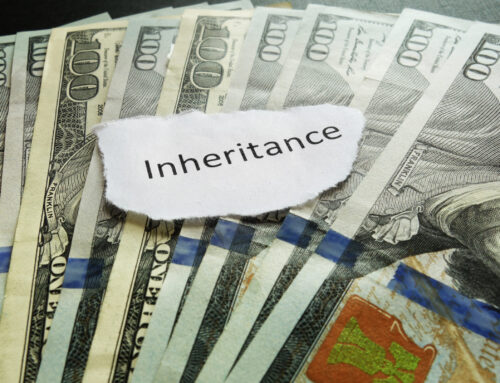The gift and estate tax exemption is now “permanent”
The One Big Beautiful Bill Act (OBBBA) has made the gift, estate and generation-skipping transfer (GST) tax exemptions permanent. This brings a great deal of certainty to estate planning. And now even fewer taxpayers need to worry about these taxes. However, this doesn’t mean estate planning isn’t critical.
Gift and estate tax exemption permanently increased
The main provision of the OBBBA that affects estate planners is a “permanent” increase in the federal gift and estate tax exemption to $15 million, indexed annually for inflation. The increase takes effect on January 1, 2026. (The GST tax exemption also increases to $15 million.) Currently, the exemption amount is $13.99 million, but under the Tax Cuts and Jobs Act (TCJA), it was scheduled to drop to an inflation-adjusted $5 million in 2026.
Bear in mind that tax laws are never truly permanent — they can be changed at any time through the passage of new legislation. But unlike the TCJA’s exemption, the new exemption doesn’t have an expiration date, providing a degree of certainty that’s been lacking in recent years. Before the OBBBA, many estate planning strategies focused on taking advantage of the increased exemption before it disappeared. That’s no longer the case.
Strategies to consider
Contrary to popular belief, the OBBBA doesn’t signal the end of estate planning as we know it. Indeed, planning remains critical to preserve wealth, provide for loved ones and build flexibility to adapt to future tax law changes. Here are some strategies to consider:
Revisit your estate plan. If you created your plan several years ago, review your documents to be sure they don’t contain formulas or amounts tied to previous exemptions. Unless you modify these provisions to reflect the new exemption, they may produce undesirable results. If your plan includes irrevocable trusts that no longer align with the current tax framework, find out whether “decanting” them — pouring them into a new trust — is an option.
Shift your focus to reducing income tax liability. When exemption amounts were smaller, estate planning strategies typically focused on removing wealth from one’s estate to shield it from federal estate tax. Potential estate tax costs generally eclipsed any income tax advantages to keeping assets in one’s estate. Now that estate taxes are less relevant for most people, it pays to consider strategies that minimize the impact of income taxes on your heirs.
For example, there are significant income tax benefits to holding onto capital assets for life (either directly or in a trust) rather than transferring them through lifetime gifts. That’s because assets transferred at death enjoy a stepped-up basis equal to their fair market value at the date of death, eliminating capital gains tax on any appreciation in value. When assets are transferred by gift, your tax basis carries over to the recipient, which may trigger significant capital gains taxes if the assets are sold.
Build flexibility into your estate plan. There are no guarantees that Congress won’t reduce the exemption in the future, so it’s a good idea to design a plan that has the flexibility to adapt to future tax law changes. For example, consider using an irrevocable trust that removes assets from your estate but gives the trustee (or a “trust protector”) the authority to take actions that would bring the assets back into your estate if that would produce a better tax outcome. There are other tools available that offer the agility to respond to changing circumstances, including special power of appointment trusts, limited powers of appointment and disclaimer trusts.
Continue to implement strategies to reduce estate tax liability if your net worth warrants it. If your net worth places you above the new exemption amount — or if it’s likely that you’ll exceed it in the future — continue planning to reduce your taxable estate.
Protect your assets. Regardless of your level of wealth, safeguarding your assets from frivolous lawsuits or unfounded creditors’ claims is essential, especially if your professional or personal activities increase your liability exposure. There are many asset protection tools available, including liability insurance, family limited partnerships or limited liability companies, domestic asset protection trusts, and offshore trusts.
Don’t overlook state taxes. Even if your estate is well below the federal exemption, you may still need to plan for state estate or inheritance taxes, which typically have much lower exemption thresholds.
Take a breath, but keep planning
OBBBA’s increased, “permanent” gift and estate tax exemption provides some welcome breathing room, but it’s not an invitation to ignore estate planning. Indeed, planning remains as important as ever to address non-estate tax issues, protect your wealth, and future-proof your estate.
Use a nongrantor trust to maximize charitable deductions
The One Big Beautiful Bill Act increases the standard deduction to $15,750 for single filers and $31,500 for joint filers, substantially reducing the number of individuals entitled to itemize deductions. This, in turn, limits the number entitled to deduct charitable contributions — other than a new above-the-line deduction for up to $1,000 in charitable contributions ($2,000 for joint filers).
One potential workaround is to use a trust to boost your charitable deductions. Here’s how it works: You transfer assets that generate passive income (such as bonds or dividend-paying stocks) to a nongrantor trust and use the trust’s income to make charitable contributions.
Because the trust isn’t subject to the standard deduction or other limitations on charitable deductions, its contributions are fully deductible, offsetting the trust’s income. This technique essentially allows you to claim your full standard deduction while enjoying the benefits of charitable deductions that would otherwise be lost.
© 2025




